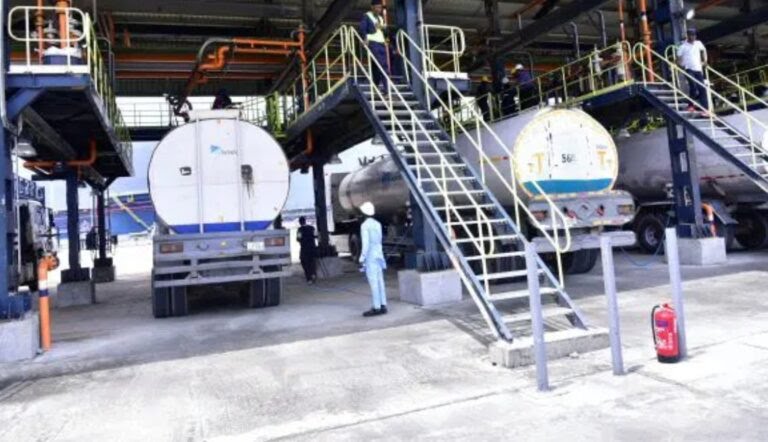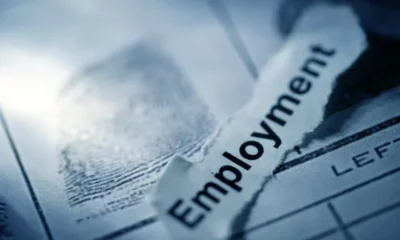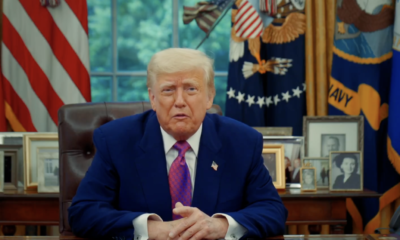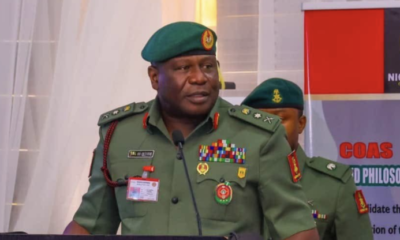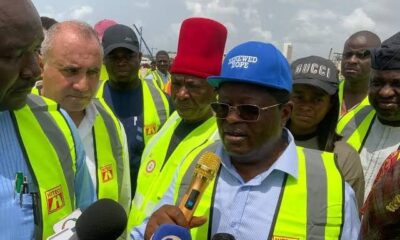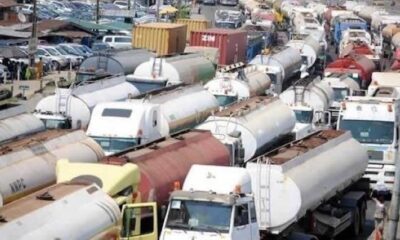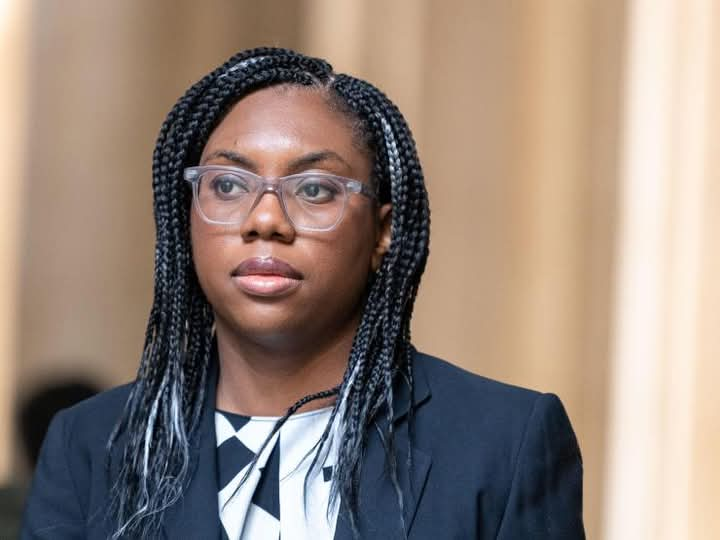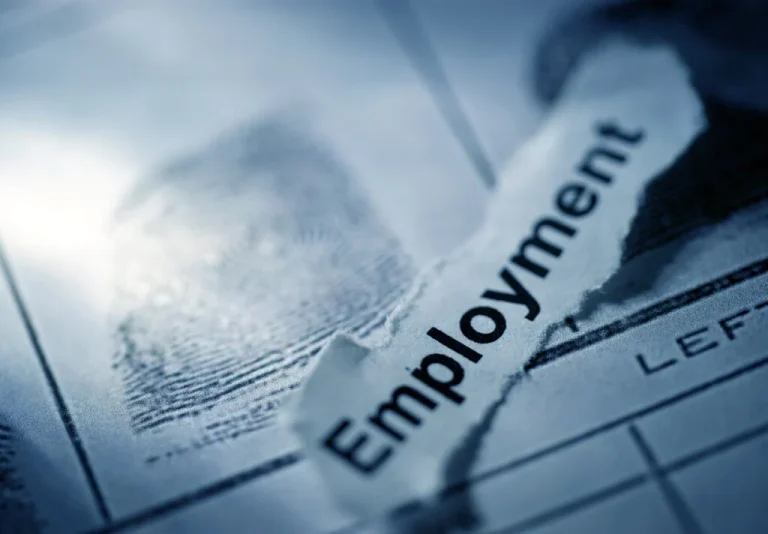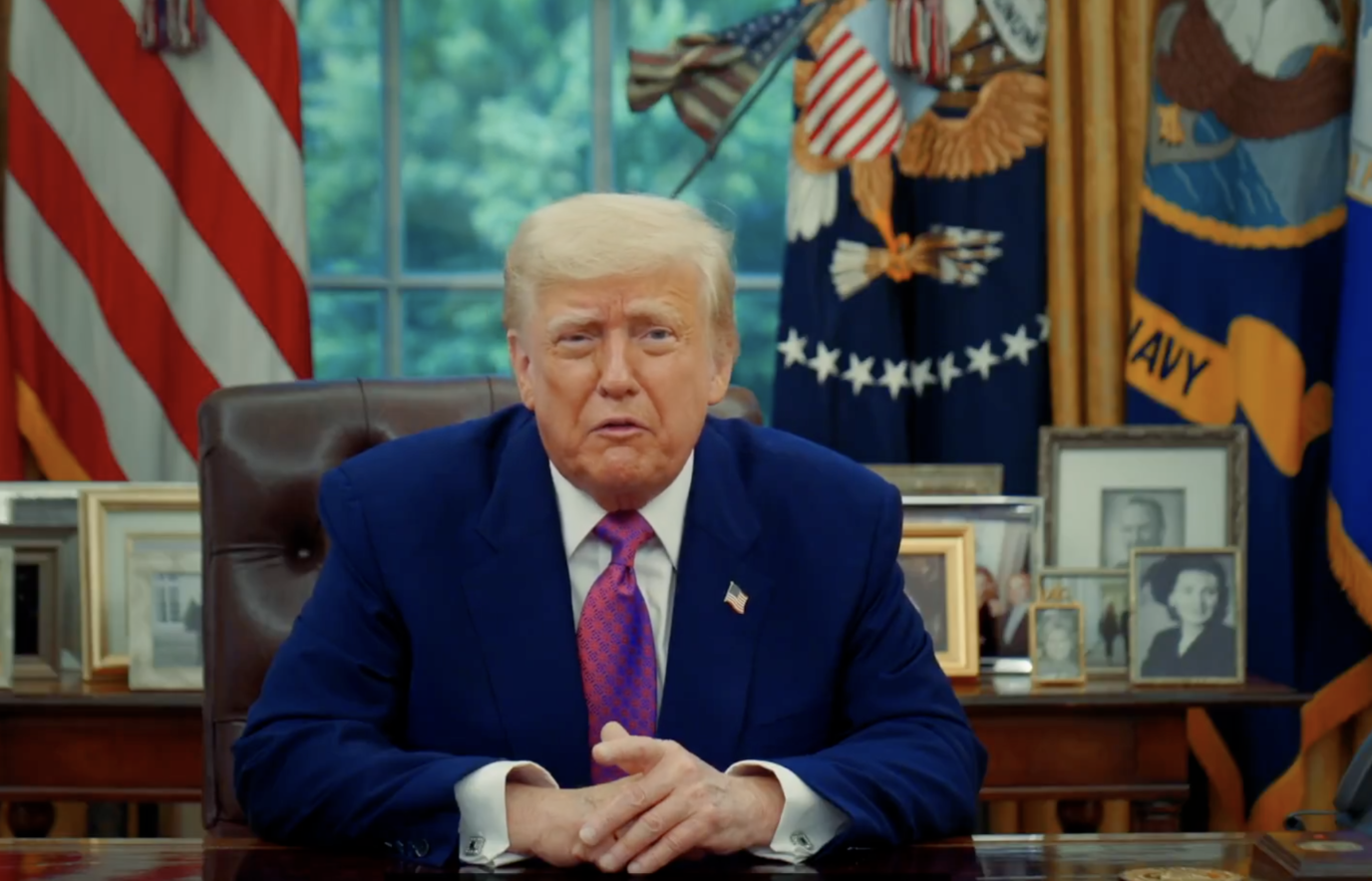The Dangote Petroleum Refinery has revealed plans to commence nationwide distribution of Premium Motor Spirit and Automotive Gas Oil from August 15.
This development comes amid rising concerns over potential fuel scarcity in Lagos and other parts of Nigeria, following disputes related to the Lagos State Government’s E-Call Up system.
Tanker drivers and petroleum marketers in Lagos announced on Sunday that they would halt the loading of products starting today, citing their inability to pay N12,500 per truck for the E-Call Up charge, particularly along the Lekki-Epe axis.
In response, the Lagos State Government maintained that it would proceed with the E-Call Up system as scheduled on Monday, accusing the unions of charging drivers as much as N41,000 without offering any services in return.
Meanwhile, the Dangote refinery, in a statement released on Sunday, disclosed plans to deploy 4,000 brand-new tankers powered by Compressed Natural Gas to strengthen its delivery network and improve fuel accessibility nationwide.
The offer will be available to marketers, petrol station owners, manufacturers, telecom companies, aviation businesses, and other major fuel consumers. The company also outlined plans to support distribution through new daughter booster CNG stations and a dedicated fleet of over 100 gas-powered tankers.
It stated that this logistics initiative, which includes free delivery of products, is aimed at removing supply chain hurdles and cutting operational expenses in critical sectors.
The company described the programme as part of its larger mission to reduce logistics costs, boost energy efficiency, drive sustainability, and contribute to national economic growth.
Aliko Dangote, the President of Dangote Group and founder of the refinery, had earlier hinted at a significant shift he described as a nationwide ‘shakedown’.
The initiative also features a credit scheme targeted at bulk buyers purchasing 500,000 litres or more. It is expected to help reactivate idle filling stations, ease inflationary trends, empower small businesses, and reinforce the economic reforms of the Bola Tinubu administration.
Dangote’s direct distribution approach may impact the anticipated revenues from truck driver parks built under the E-Call Up system.
Scarcity scare
Meanwhile, marketers expressed fear that the decision of tanker drivers to stop lifting fuel beginning from today (Monday) could trigger scarcity if nothing is done to resolve the matter amicably.
Recently, the Lagos Deputy Governor, Obafemi Hamzat, said the E-Call Up system was designed to regulate the movement of articulated vehicles and tankers accessing the Lekki-Epe corridor, thereby promoting orderly traffic flow and preventing the kind of gridlock previously experienced in the Apapa area.
The Lekki-Epe axis, which hosts critical investments such as the Dangote refinery, Lekki Deep Sea Port, and several oil and gas installations, has continued to witness a surge in industrial and commercial activities.
The Commissioner for Transportation, Mr Oluwaseun Osiyemi, had explained that the E-Call Up System was designed to prevent chaos on the roads by regulating truck movements using a structured scheduling framework, stating that under the new regime, truck operators would be required to register online and upload their Authority to Load documents.
The commissioner mentioned that only trucks that were validated and cleared would be granted access to designated truck parks, where they would await an electronic call-up notification before proceeding to their loading destinations, saying “the process is aimed at reducing illegal parking, improving traffic flow, enhancing security and safeguarding road infrastructure along the busy corridor.”
With only one major exit route in the area, the government said this growth had intensified congestion concerns.
However, the tanker drivers under the aegis of the National Association of Road Transport Owners, as well as the Independent Petroleum Marketers Association of Nigeria, said they could only pay N2,500 per truck.
In an interview with one of our correspondents on Sunday, NARTO President Yusuf Othman said the association was still in talks with the Lagos State Government to allow its members to pay N2,500 per truck instead of N12,500.
“It is not that our members don’t want to load from the Dangote refinery; there is a plan by the Lagos State Government to start the E-Call Up system on Monday, which will attract N12,500 per truck. We have requested the Lagos State Government to reduce the amount, but the government has yet to do that. Therefore, we told our members not to ply the road; they should hold on until we have an amicable resolution with the Lagos State Government.
“For now, we are still negotiating with the Lagos State Government. There is no cause for alarm for now. But if they disagree, our boys will not go and load tomorrow (Monday). We told the government that the N12,500 is too high. We recommended N2,500 from the beginning. Let’s see how it goes if we can have an amicable resolution; if not, there will be no loading on Monday,” Othman said.
Speaking, IPMAN Vice President, Hammed Fashola, told The Punch that marketers were not against the E-Call Up system, but the N12,500 fee. Aside from the cost, Fashola said the state government was in a hurry to implement the policy, calling on the government to listen to stakeholders.
“Let me start by saying that both the NARTO and IPMAN are not against the initiative of the Lagos State Government. We are not against it. In actual fact, we have been in discussion with them for some time. I think the only issue is the cost. And again, I think they are in a hurry to implement this system, which is not supposed to be so.
“All stakeholders have to be on the same page before they can implement it. When you want to look at the stakeholders in this sense, you look at IPMAN, NARTO, Petroleum Tanker Drivers, the refinery, and depot operators too. If you want to do a call-up system, you have to involve the refinery and the depots, because you need information from them. There must be a synergy so that all stakeholders are on the same page. All these things are not there,” he said.
Fashola faulted the condition of the parks built for the trucks, alleging that the state government had not taken stakeholders on a tour of the facility.
“As I’m talking to you today, I can speak for IPMAN. Nobody has shown this facility to IPMAN. I think sometime last year, I was part of the team that went out to look at all the proposed parks. We went to Orile, there’s one in Orele, there’s one in Mile 2. All these facilities are just like a mushroom park. They are not really built for trucks. So, we advised that they have to upgrade them.
“There were no facilities in place. How can you put a truck, either empty or loaded, on an empty ground? You are just waiting for disaster to happen. We advised the government that anybody who wants to operate a park must operate a standard park. That is the only inspection that I can say all the stakeholders were involved,” he said.
Fashola told The Punch that none of the parks visited then got the approval of stakeholders, saying the Lekki-Epe park was not shown to IPMAN. He added that letters were written to Governor Babajide Sanwo-Olu and the commissioner, but neither of them responded.
“This Lekki-Epe axis they are talking about, as I’m talking to you, nobody has shown any park to IPMAN. All these things matter. We have to look at it, make our observations, and make corrections if necessary. If they are up to standard, we sanction them. Then, the issue of cost, nobody has discussed it with us. When they mentioned it, we wrote to the governor, we wrote to the Commissioner for Transport, and we recommended N2,500. Up till now, there has been no official response from them.
“The only thing we heard was that ’we are going out, we are going to implement this by Monday, June 16, no going back.’ Things are not done like that,” he cautioned.
Fashola stated that the policy was similar to creating ’jobs for the boys’, because Dangote refinery and Pinnacle Oil have enough space for their trucks.
“This should not look as if it’s a job for the boys because as I’m talking to you, if you go to the Dangote refinery, they have a big facility to accommodate whatever truck they want to load in a day. If you go to Pinnacle, they have their own park. So, there must be an exception for some drivers.
“If I’m coming from the north, I can decide to park my truck in Ogere and wait until I get the approval to load either from the refinery or from Pinnacle. Once I get that, my truck hits the road. I don’t need to wait for anything other than to move. So, what is the essence of my going to another park again to go and pay N12,500? It doesn’t make sense,” he stated, stressing that the facility should be for those who needed it.
“Those who can use it will use it. It should not come under compulsion. Some marketers in Lagos have their stations in Lagos. They have their parks attached to their stations. If they programme them today to come and pick up products at the refinery, should they leave their stations to go and stay in another park before they will now move out of that park and move to Dangote? Does that make sense?
“So, I think they are in a hurry and they have to be careful too, because if you say you are serving people, you listen to people’s complaints. We have to be on the same page. Our doors are open. If they call for dialogue, we will make ourselves available so that we can work together,” he maintained.
Fashola suggested that the government should allow the owners of the parks to relate with drivers if they had no stake in the business.
“If they know the money is not coming to them, they should withdraw. Let the private operators come to us. Let’s discuss. I think the government should withdraw. If they know that they are not party to it, and they are not interested in the private operators’ affairs. They should allow the operators to sit down with us. The government should wash their hands,” he advised.
He denied claims that some tanker drivers would go to the depots without anybody inviting them.
“With the cost of fuel and the cost of maintenance and everything, can you just take your car and start roaming around Lagos aimlessly without any purpose? So you will now put diesel of N1,000 plus per litre into your truck and start driving it around Lagos aimlessly. Is that possible? Does that make sense?” he asked.
Fashola said the Lagos State Government needed to act fast to avoid another fuel scarcity. According to him, the drivers decided to stay at home to avoid confrontations that could lead to loss of lives and property.
“We are not going to confront anybody. That’s why we decided to stay away so that they would not destroy our vehicle or molest our drivers. The last time they did it, we lost a driver, we lost our properties, and our vehicles were damaged. To avoid that, we are withdrawing our services. At least, let peace reign. If they don’t see any tankers, can they attack the tanker? No!
“The government has to do something. It has to call a meeting so that we can resolve this problem once and for all,” Fashola said.
Lagos Government speaks
However, the Permanent Secretary at the Lagos State Ministry of Transportation, Olawale Musa, said tanker driver unions were being mischievous, saying the N12,500 was not going into the government coffers.
According to Musa, the money was for the use of the facility built for the drivers in the Lekki axis to avert gridlocks and environmental pollution, saying the unions collect N41,000 from the drivers daily without rendering any service.
He said the facility was built by a private investor, saying the union and the drivers should try to obey rules and regulations to prevent the Lekki-Epe road from turning into the old Apapa road.
“The unions are just being mischievous. Ask them how much they collect from their truck drivers daily. On average, they collect about N41,000 from each truck driver. We are not even collecting money from them, it is for the use of the truck park and the system, so that we can keep them orderly, instead of them parking on the road.
“We have provided conveniences for them, where they can urinate, where they can sleep, and do everything. But the union is collecting money from them to encourage them to be on the road. We are not collecting money. We have people who have invested their money in constructing the park. The money is for them to go to the park and for us to service the system.
“That’s what they are paying. But they just don’t want to obey the rules. And the next thing, they will tell you they are going on strike because they know that fuel is very important to everybody. They just want to be lawless. The money is not for us. It’s not for the government. It’s for the truck park and for us to maintain the system. And if we need to enforce, then enforce,” he explained.
The permanent secretary emphasised that the drivers were obstructing traffic while defecating in the open.
“It’s not about the government forcing them to pay. People who don’t have anything to do there will just come and park on the road until they have somebody who needs their truck. They are just on the road; they defecate on the road and do everything there. But we are now providing where you can stay pending the time you can provide the service you want to provide, and you don’t want to do that. How does that make sense? In a sane country, there is nowhere that is done,” he added.
Asked to speak on the drivers’ negotiation to pay N2,500, Musa said this was below what was needed to recoup the investors’ funds.
“Look, you as an individual, you have invested millions. Some people have invested billions, and you are telling them to pay N2,500 while the union is collecting over N40,000 and not providing any service. Somebody has invested their money and provided services, you are telling them to pay that kind of money. They know what they are doing,” he stressed, asking NARTO and PTD to explain what they do with the money they collect from the drivers daily.
Credit: The Punch

 BIG STORY4 days ago
BIG STORY4 days ago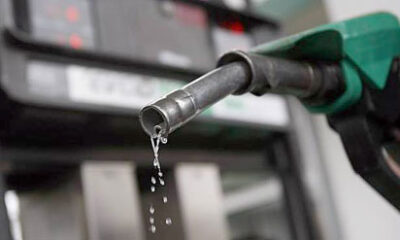
 BIG STORY2 days ago
BIG STORY2 days ago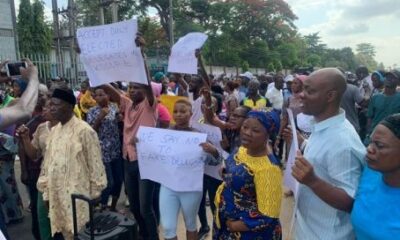
 BIG STORY4 days ago
BIG STORY4 days ago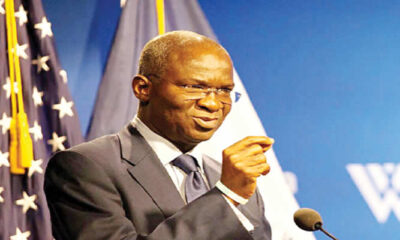
 BIG STORY3 days ago
BIG STORY3 days ago
 BIG STORY4 days ago
BIG STORY4 days ago
 BIG STORY4 days ago
BIG STORY4 days ago
 BIG STORY5 days ago
BIG STORY5 days ago
 BIG STORY1 day ago
BIG STORY1 day ago




